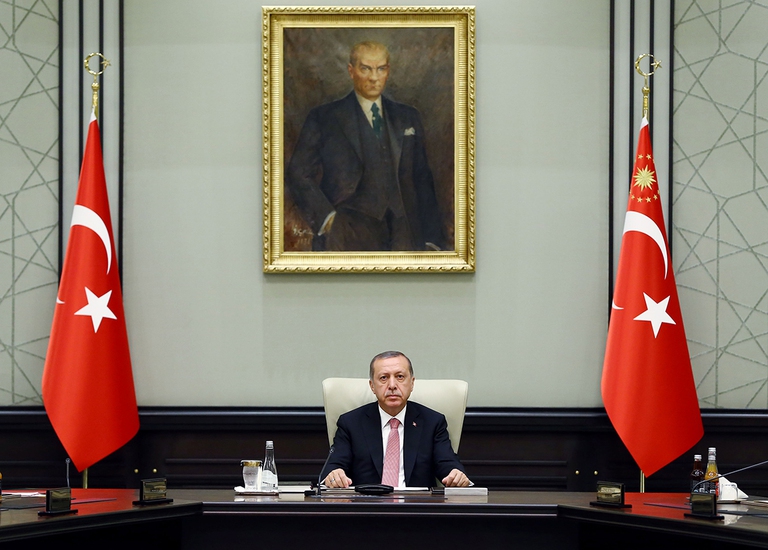
Trump’s decision to recognise Jerusalem, considered holy by three religions, as Israel’s capital has met with a widespread backlash from the rest of the world. Why it’s so controversial.
President Recep Tayyip Erdogan has declared a state of emergency in Turkey that has been approved by the parliament in a 346 to 115 vote. In effect since the 21st of July, it will last 3 months. Turkey suspends the European Convention on Human Rights The most controversial and worrisome consequence is the suspension of the
President Recep Tayyip Erdogan has declared a state of emergency in Turkey that has been approved by the parliament in a 346 to 115 vote. In effect since the 21st of July, it will last 3 months.
The most controversial and worrisome consequence is the suspension of the European Convention on Human Rights, “like France did”, according to vice-president Numan Kurtulmus. Plus, Erdogan and his cabinet will be able to bypass the parliament when drafting laws and to restrict or suspend a number of rights and civil freedoms. For instance, it will be possible to extend the detention of thousands of people arrested in the wake of the failed coup (which caused the death of 246 people) on 15 July.
Nevertheless, the government promised that citizens’ daily life won’t be affected and that the state of emergency only aims to root out “virus” from armed forces. The situation has been defined similar to that of France in the wake of last year’s November attacks. More than 50,000 state employees have been arrested, fired or suspended over the past few days. 99 military leaders have been accused of being involved in the coup.
Siamo anche su WhatsApp. Segui il canale ufficiale LifeGate per restare aggiornata, aggiornato sulle ultime notizie e sulle nostre attività.
![]()
Quest'opera è distribuita con Licenza Creative Commons Attribuzione - Non commerciale - Non opere derivate 4.0 Internazionale.
Trump’s decision to recognise Jerusalem, considered holy by three religions, as Israel’s capital has met with a widespread backlash from the rest of the world. Why it’s so controversial.
Amnesty International has documented the state of human rights in 159 countries in 2016. And claims: “The rhetoric of ‘us against them’ is breeding division and fear”.
Uomini bruciati vivi, esecuzioni sommarie. Le ultime ore di combattimenti ad Aleppo segnate da terribili atrocità. Accordo per evacuare i civili.
State of emergency could threaten human rights In response to the failure of the military coup that took place on the 15th of July, the Turkish government has begun a series of crackdown measures. These include declaring a three-month long state of emergency and suspending the European Convention on Human Rights (ECHR). Thousands of Turkish citizens, from academics to soldiers and
Th UK’s Prime Minister Theresa May chose Boris Johnson as the country’s foreign secretary. Why was the world so surprised by this decision?
Two journalists reported that the Turkish secret service shipped illegal arms to Syria. They have been sentenced to five years in jail, after a gunman tried to kill one of them outside the courthouse.
Located in the South-Caucasus, the mountainous republic of Nagorno Karabakh is a presidential democracy inhabited by ethnic Armenians. In 1923, Stalin handed the territory over to Azerbaijan following a divide and rule policy put into place to weaken the national aspirations of minority groups. After the fall of the Soviet Union in 1991, a war broke
In the latest attack on freedom of expression in Turkey, three academics who signed a peace petition in January 2016 have been detained by a court of Istanbul, being charged with making terrorist propaganda. The 3 were arrested on 15 March 2016, pending the completion of a criminal investigation. Security forces requested imprisonment up to
They’re guilty of signing a declaration to denounce and ask to stop the violence perpetrated by the Turkish army against the leaders of the Kurdistan Workers’ Party – PKK. It’s a declaration urging a peaceful solution to the almost centuries-old conflict in the south-east between Turkey and the PKK, which is considered to be a terrorist








